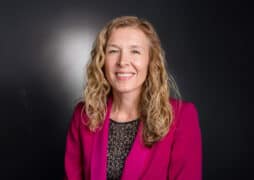The COVID-19 pandemic has put a spotlight on a tragic reality within our health care system – no matter the disease, if you are Black you are more likely to experience worse outcomes than your Caucasian neighbors. While this came as shocking news for some, garnering extensive headlines over the course of the summer, this was not news to Susan G. Komen or any of our colleagues in the breast cancer community. We have been working for years to address health and social inequities that cause Black women to be about 40 percent more likely to die from breast cancer. Yet the national attention to the issue has given us an opportunity to marshal the resources needed to make change.
It is with that context that Susan G. Komen virtually gathered leading experts and advocates in breast cancer disparities from across academia, philanthropy and industry for the 2nd Annual Komen Breast Cancer Disparities Research Summit. This year’s summit focused on developing actionable solutions. As Komen CEO Paula Schneider noted as she opened the summit: “The time for talk is over. We must take action – and that action starts today.”
The Summit, sponsored by Amgen, Bank of America, Ford, Merck and Walgreens, featured nearly 300 researchers, patient advocates and industry leaders. This event also included a closed career development session, sponsored by Amgen, for Komen’s Training Researcher to ElimiNate Disparities (TREND) program trainees. This program is designed to build a workforce from underrepresented populations to study health disparities so that we can have a greater impact in communities of need. The Summit provided early career investigators the opportunity to improve their knowledge and skillset so they can effectively pursue solutions for actionable change.
Day 1 of the Summit was moderated by event chair and Komen Scholar Dr. Amelie Ramirez, Chair and Professor of Population Health Sciences at the University of Texas Health Science Center at San Antonio. In her opening remarks, Dr. Ramirez noted that, “We have long known that there are problems and causes of disparities in outcomes for breast cancer patients. Yet research in this area has been challenged by a lack of resources, limited data, a shortage of people trained to solve these problems, and no venue where researchers and patient advocates could collaborate to overcome these barriers. That’s why this event is so important, because we can begin to work together to solve the problem.”
She was followed by a conversation about the challenges and possible solutions for connecting with diverse populations and expanding their participation in clinical trials, featuring Ricki Fairley, CEO, TOUCH, The Black Breast Cancer Alliance; Dr. Augusto Ochoa, Director of the Stanley S. Scott Cancer Center at Louisiana State University Health Sciences Center; and Chanita Hughes-Halbert, Ph.D., Professor at the College of Medicine at Medical University of South Carolina.
The day concluded with an eye-opening discussion of genetics of breast cancer and some ways to overcome disparities in genetic testing and counseling, featuring Laura Fejerman, Ph.D., Associate Professor, Department of Public Health Sciences and the Comprehensive Cancer Center, University of California, Davis; and former Komen Board Member and Scientific Advisor Dr. Olufunmilayo Olopade, M.D., Associate Dean for Global Health & Director, Center for Clinical Cancer Genetics, University of Chicago.
Day 2 kicked off with a keynote by CNN’s Athena Jones, a breast cancer survivor, who has reported extensively over the past year about disparities in our health care system, particularly in light of the COVID-19 pandemic.
She was followed by a presentation from Dr. Sonya Reid, MPH, Assistant Professor of Medicine, Division of Hematology/Oncology, Department of Medicine at Vanderbilt University Medical Center, detailing lessons learned from COVID-19 on health care disparities in breast cancer patients.
The Summit concluded with a pair of panel discussions examining the role of racism in public health and public policies needed to achieve health equity. The first panel featured Dr. Kim Johnson, Senior Director of Komen’s African American Health Equity Initiative; and Dwayne Proctor, Ph.D., Sr. Adviser to the President, Equity, Diversity & Inclusion, at the Robert Wood Johnson Foundation. They were followed by Markia Smith, Ph.D. Graduate Student at the University of North Carolina, Chapel Hill; and Molly Guthrie, Komen’s Director, Public Policy and Advocacy.
The discussions were engaging and resulted in a series of key takeaways that will help guide future actions. Some of these include enhancing the training for medical professionals to better reach and communicate with populations that experience health inequities, improving access to high quality and affordable health care for all, and acknowledging and discussing structural racism so it can be addressed. Check back to the Komen blog for a more detailed look at the Summit’s key ideas for change. And, be sure to check out our Real Pink Podcast which featured several follow up discussions on health equity.



